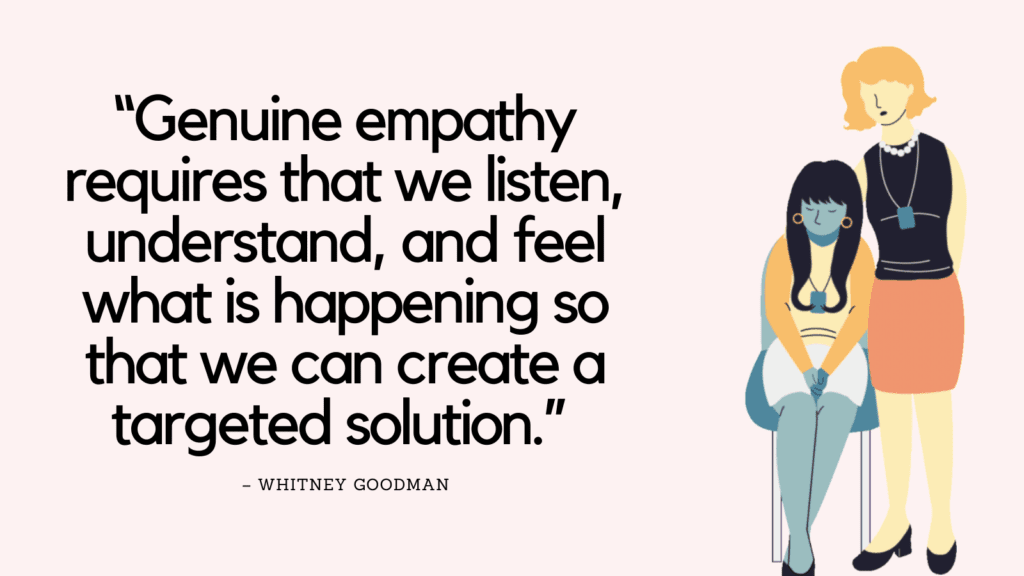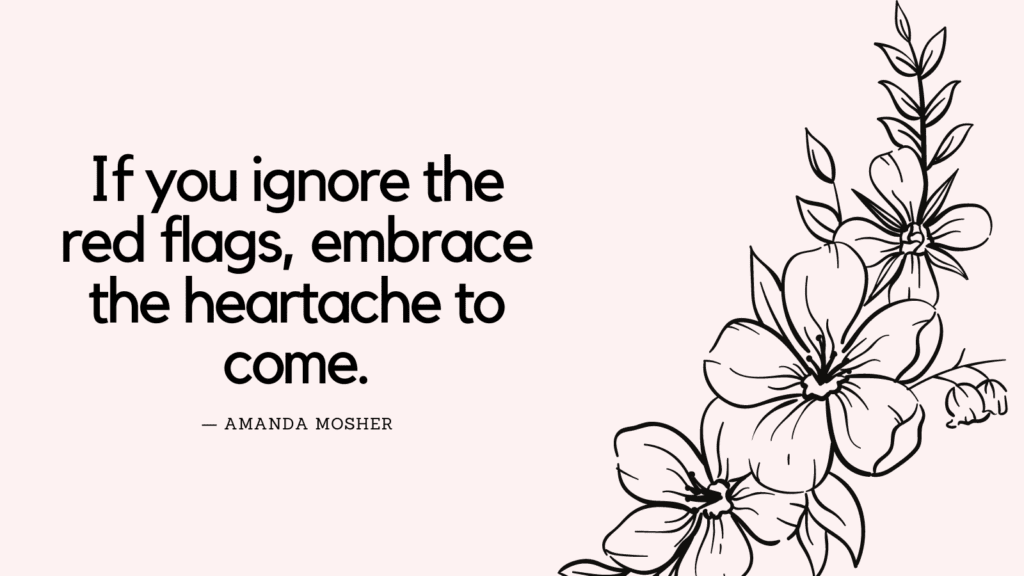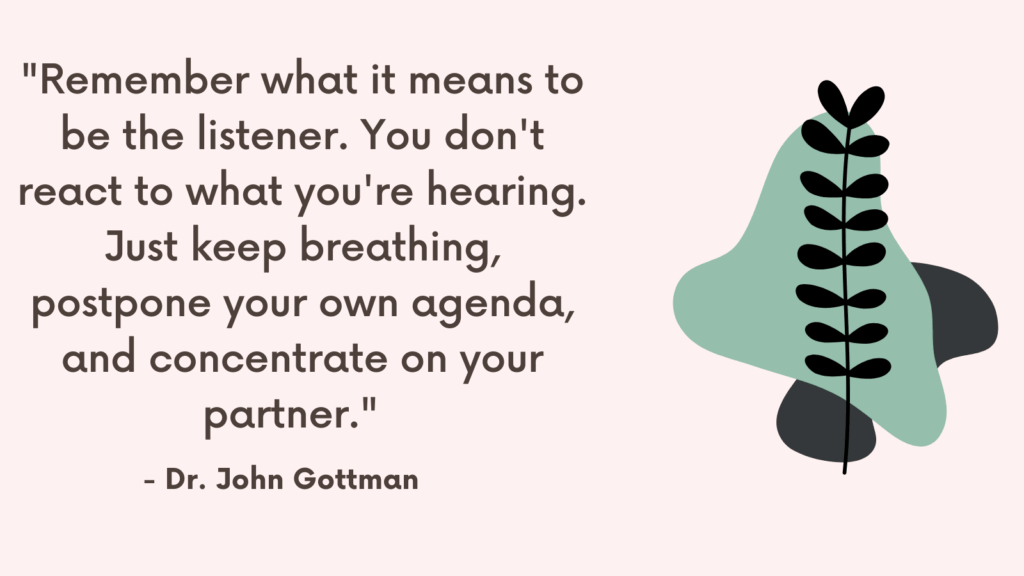This post contains some of the best listening ear quotes.
Listening Ear Quotes
1. “Connectedness is necessarily a two-way street, each partner in the conversation listening and latching on to what the other said.” – Kate Murphy
2. “But it’s important to emphasize that hearing is not the same as listening, but rather its forerunner. Hearing is passive. Listening is active.” – Kate Murphy
3. “But what does it mean to really listen to someone? Interestingly, people can more readily describe what makes someone a bad listener than what makes someone a good listener.” – Kate Murphy
4. “Complaining is something we all do despite our best efforts to quit the so-called bad habit. This is because it is one of the main ways that we bond with others and create emotional connection. It’s an effective way to share how you feel, connect, and evoke empathy in the listener.” – Whitney Goodman
5. “Each person has their own threshold for complaining. You may notice that you can empathize or listen to someone up to a certain point, but when you’re done, you’re done.” – Whitney Goodman
Related: Feeling Invisible? 3 Steps To Stop Feeling Invisible and Be Seen
6. “Evolution gave us eyelids so we can close our eyes but no corresponding structure to close off our ears. It suggests listening is essential to our survival.” – Kate Murphy
7. “For sure, listeners take on more risk by making themselves available when they don’t know what they will hear, but the greater risk is remaining aloof and oblivious to the people and the world around you.” – Kate Murphy
8. “Genuine empathy requires that we listen, understand, and feel what is happening so that we can create a targeted solution.” – Whitney Goodman
9. “If you want to be an effective support person, you have to develop excellent listening skills.” – Whitney Goodman
10. “It is only by listening that we engage, understand, connect, empathize, and develop as human beings.” – Kate Murphy
Related: Do’s And Don’ts Of Effective Communication
11. “It’s subtle, but profound. And it’s what listening is all about. Everybody has something going on in their heads, whether it’s your child, your romantic partner, your coworker, a client, or whoever. To listen well is to figure out what’s on someone’s mind and demonstrate that you care enough to want to know. It’s what we all crave; to be understood as a person with thoughts, emotions, and intentions that are unique and valuable and deserving of attention.” – Kate Murphy
12. “It’s the measurable moment when, by listening, you connect with someone.” – Kate Murphy
13. “Listening for things you have in common and gradually building rapport is the way to engage with anyone.” – Kate Murphy
14. “Listening helps you understand yourself as much as those speaking to you.” – Kate Murphy
15. “Listening is about the experience of being experienced. It’s when someone takes an interest in who you are and what you are doing.” – Kate Murphy
16. “Listening is something you do or don’t do every day.” – Kate Murphy
Related: Emotionally Unavailable Husband Quiz
17. “Listening requires, more than anything, curiosity.” – Kate Murphy
18. “None of us are good listeners all the time. It’s human nature to get distracted by what’s going on in your own head. Listening takes effort. Like reading, you might choose to go over some things carefully while skimming others, depending on the situation. But the ability to listen carefully, like the ability to read carefully, degrades if you don’t do it often enough.” – Kate Murphy
19. “So it’s striking that high schools and colleges have debate teams and courses in rhetoric and persuasion but seldom, if ever, classes or activities that teach careful listening.” – Kate Murphy
20. “Supporting other people and listening to complaints can be really challenging. When we’re not able to fix something or a topic is overwhelming, we may be tempted to eliminate that person from our lives or simply refer to them as “negative.” But humans are inherently negative by nature and it helps keep us alive.” – Whitney Goodman
21. “Talking without listening is like touching without being touched. More encompassing than touch, our entire self vibrates with the sounds that are the expressed thoughts and feelings of another. The human voice enters and moves us physically as well as emotionally.” – Kate Murphy
Related: How To Validate Someone’s Feelings Without Agreeing? (+Examples of Validating Statements)

Validating Statements
Validating statements are messages or responses that acknowledge and validate a person’s thoughts, feelings, experiences, or perspectives. They convey support, empathy, and understanding, helping individuals feel heard and validated in their emotions and experiences.
Here are some examples of validating statements:
1. “It sounds like you’re going through a difficult time, and it’s completely understandable that you’re feeling this way.”
2. “Your feelings are valid, and it’s important to take them seriously.”
3. “I can see how that situation would make you feel frustrated/anxious/sad.”
4. “It’s okay to feel overwhelmed; many people experience similar emotions in challenging circumstances.”
5. “Your perspective on this matter is important, and I appreciate your willingness to share it.”
6. “It takes strength to express your thoughts and emotions. I admire your courage in doing so.”
7. “Your reaction is normal considering the circumstances. It’s important to be patient and kind to yourself during these times.”
8. “I hear what you’re saying, and I want you to know that your feelings are valid, even if others may not understand.”
9. “You’re not alone in feeling this way. Many others have shared similar experiences or emotions.”
10. “I want you to know that your thoughts and concerns are important and deserve attention.”
Remember, validating statements should be genuine and sincere. They aim to create a safe and supportive environment for individuals to open up and explore their emotions without judgment.



